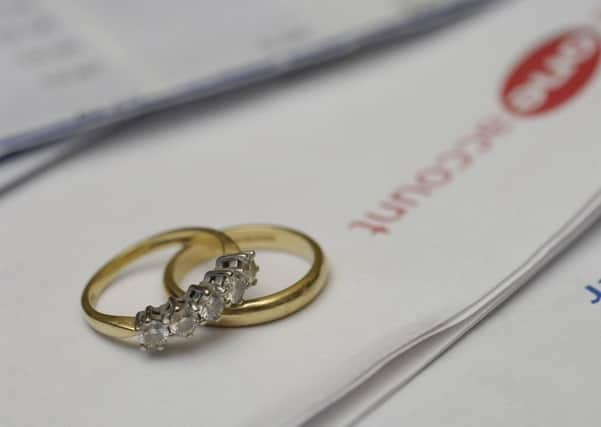Jennifer Wilkie: Don’t lie to your spouse and don’t lie to the court


THE question of the how the Scottish courts would deal with the failure to disclosesignificant assets in divorce cases has come into focus following the recent English Supreme Court divorce cases of Alison Sharland and Varsha Gohil.
Alison Sharland, wife of AppSense co-founder Charles Sharland, challenged whether her husband’s evidence about plans to float his shares on the stock market led to a failure to make a material disclosure. Having reached a settlement agreement, it was suggested in the financial press that Mr Sharland’s shares were worth significantly more than he indicated and Mrs Sharland challenged the non-disclosure before the ‘consent order’ (which finalises the finances) was sealed by the Judge. The Supreme Court agreed with Mrs Sharland that the misrepresentation and non-disclosure of information about the shares should lead to the divorce settlement being reassessed.
Advertisement
Hide AdAdvertisement
Hide AdVarsha Gohil has also has been allowed to seek a larger payout on the basis of her husband Bradesh not fully disclosing the value of his assets. During Bradesh Gohil’s criminal trial for money laundering, it emerged he was wealthier than he had led his wife, and the court, to believe. Mrs Gohilapplied to have her settlement set aside and the Supreme Court agreed.
Both wives now have the chance to have the court re-examine their divorce settlements.
Scotland does not have England’s two-stage approach to divorce of decree nisi and decree absolute; nor do we have consent orders to deal with financial matters.
Scotland has a one-stage process where final orders for financial provision are part of the application to the court for ‘decree of divorce’ (the final order from the court). While the attitude of a court in Scotland to a spouse having misled them is likely to be similar, the procedure to redress matters by the aggrieved party would, inevitably, be different. In Scotland, an application would need to be made to the court alleging fraud and seeking compensation.
Where parties enter into an agreement regulating their finances, as the majority of divorce cases in Scotland do, a court will not normally interfere.
The court can be asked to vary or set aside its terms in narrow circumstances where the agreement was not fair and reasonable at the time it was entered into. This usually means that once divorce is granted, the door is pretty much shut to challenge the agreement.
There is an implied obligation of openness and transparency about the finances of a party in a divorce, and it is always hoped that will happen. However, the warning here is that an agreement should not be signed if there is any suspicion of non-disclosure or there are outstanding queries to be addressed which you are not prepared to live with.
For many people who have gone through divorce, there is little desire to head back to court to go over old ground and spend money for an uncertain result. Lawyers in England and Wales expected to see a flood of ex-spouses wishing to re-address the question of disclosure in their divorce cases and it is not yet clear whether this will transpire.
Advertisement
Hide AdAdvertisement
Hide AdThe road ahead will not be a short one for Mrs Sharland or Mrs Gohil. Their recent victories are limited to the right to have their divorce settlements looked at again, neither woman is guaranteed the result they seek.
Regardless, the principle from both cases remains the same – don’t lie to your spouse and, whatever you do, don’t lie to the court.
• Jennifer Wilkie is a senior associate in Anderson Strathern’s family law team, www.andersonstrathern.co.uk